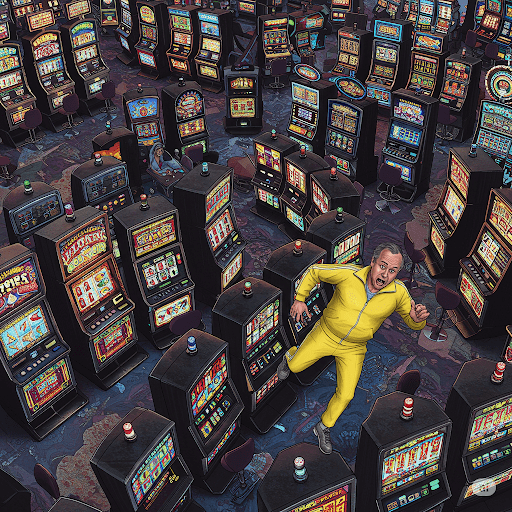
Alright, gather ’round, you hopeful high-rollers and penny-slot dreamers. Let’s talk about those temples of chance, those shimmering palaces of possibility where fortunes are won and lost under the watchful gaze of countless cameras. I’m talking about casinos.
You walk in, hear the symphony of bells and whistles, see the flashing lights, feel the low hum of energy. It feels exciting, maybe even a little dangerous. You think you’ve got a shot, right? Maybe tonight’s your lucky night! You pit your wits, your gut feeling, your “system” against the house.
Well, let me tell you something from a guy who understands odds, illusion, and the beautiful predictability of human behavior: The casino doesn’t need luck. It has math. And psychology. And an environment meticulously designed to separate you from your money, legally and relentlessly. They don’t need to cheat you at the table. The whole building is the rigged game.
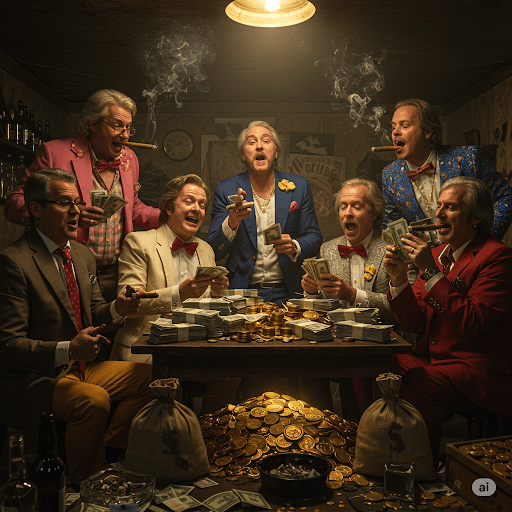
First, the boring but brutal truth: The House Edge. Every single game on that casino floor – blackjack, roulette, craps, the slots – is mathematically weighted in the casino’s favor. Period. Full stop. It might be a small edge, just a few percentage points, but averaged over thousands of bets and millions of players, it’s a guaranteed profit stream. It’s like gravity – slow, relentless, and always pulling downward (on your chip stack, anyway).
Think of roulette. 36 numbers plus 0 and maybe 00. A bet on a single number pays 35-to-1. But there are 37 or 38 pockets. That single or double zero? That’s the house edge right there, naked and unashamed. Blackjack? Even with perfect basic strategy, the rules (dealer hitting on soft 17, payout ratios for blackjack) give the house a slight advantage. Craps? Certain bets are better than others, but none favor the player. The slots? Those computer algorithms are programmed with a specific payback percentage, always less than 100%. You might hit a jackpot (someone has to, keeps the dream alive!), but over the long haul, the machine keeps a set percentage of everything fed into it.
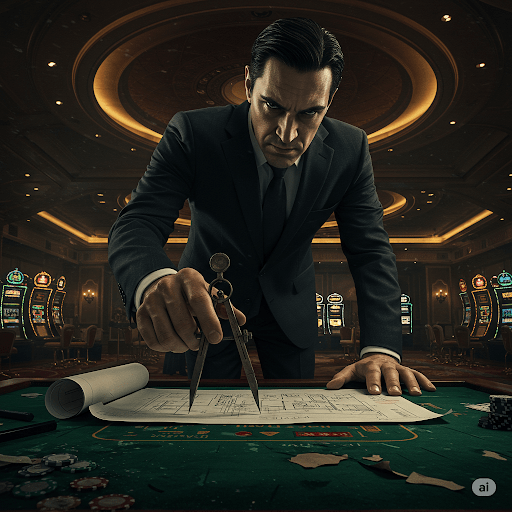
But that’s just the skeleton. The real artistry, the part that connects to my old world of magic and misdirection, is the psychological design of the casino environment itself. It’s a masterclass in manipulating perception and behavior:
- No Clocks, No Windows: Ever notice how casinos feel like timeless voids? You lose track of day and night. Time stretches and warps. The goal? Keep you playing longer without realizing how much time (and money) has flown by. It’s sensory deprivation meets wallet extraction.
- The Maze Layout: Getting lost is part of the plan. The winding paths, the strategically placed banks of slots – it forces you to walk past more games, hear more winning sounds, feel more temptation on your way to the cashier, the restroom, or the exit (if you can find it).
- The Soundscape of Winning: Ding-ding-ding! Bells! Whistles! Cheering! Even if most people are losing, the casino constantly bombards you with the sounds of winning. This creates an illusion of easy money, fuels excitement, and triggers your own desire to hit that jackpot. It’s auditory social proof.
- Complimentary Booze: Lowering inhibitions? Encouraging riskier bets? Slowing down your thinking? Check, check, and check. That “free” drink is one of the most cost-effective investments the casino makes.
- Chips Instead of Cash: Abstracting money into colorful plastic chips makes it feel less real. Easier to bet $100 when it’s four black chips instead of a crisp Benjamin Franklin you just pulled from the ATM. It psychologically distances you from the value.
- Near Misses (Especially on Slots): Those algorithms are often designed to show you almost winning lines frequently. Two cherries and a lemon? Bar-Bar-Blank? This triggers the same dopamine response as a win, encouraging you to keep spinning “because you were so close!” It exploits the gambler’s fallacy and reinforces playing behavior. Illusionist stuff, pure and simple.
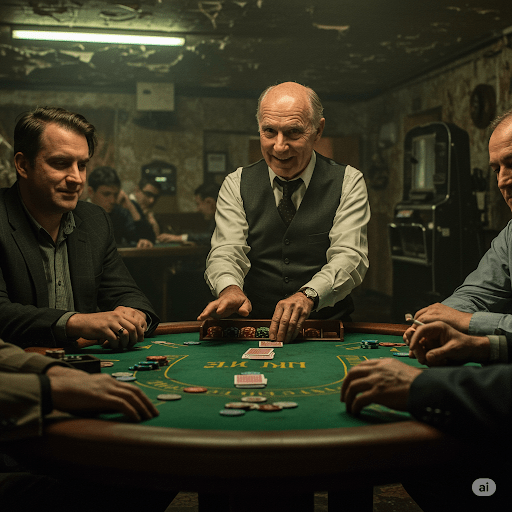
Okay, okay, I hear you grumbling. “But what about actual cheating? Does it happen?” Sure. Like any industry involving large amounts of cash and human temptation, it happens. But usually, it’s not the house itself orchestrating it at a high level – the risk to their license and reputation is too great when the built-in edge guarantees profit. When cheating happens, it’s more often:
- Crooked Dealers: Working solo or with accomplices. Palming chips, manipulating card shuffles (false shuffles, stacking the deck – requires serious skill, like a magician’s), using rigged equipment smuggled in. Usually gets caught eventually due to surveillance and pit boss oversight. Think Harry Anderson doing a card trick, but for keeps and highly illegal.
- Player Cheats: Collusion between players at card tables, marking cards, using hidden devices (less common now with tech), past posting (placing a bet after the outcome is known), distracting the dealer. Casinos spend fortunes on surveillance to catch this.
- Rigged Equipment (Historically): Loaded dice, magnetic balls in old roulette wheels, gaffed cards. Less common in modern, highly regulated casinos, but definitely part of the lore and historical reality. Think shady backroom games, not the Bellagio (usually).
- Slot Machine Tampering: Both insiders manipulating the programming or payout mechanisms (rare but happens) and players trying to use devices to trick the machine (also gets caught).
So, could the house theoretically cheat if it wanted to? Absolutely. They control the equipment, the software, the dealers. They could program slots with lower-than-advertised payouts (illegal and risky). They could use sophisticated tech we haven’t even thought of. But here’s the cynical punchline: Why bother?
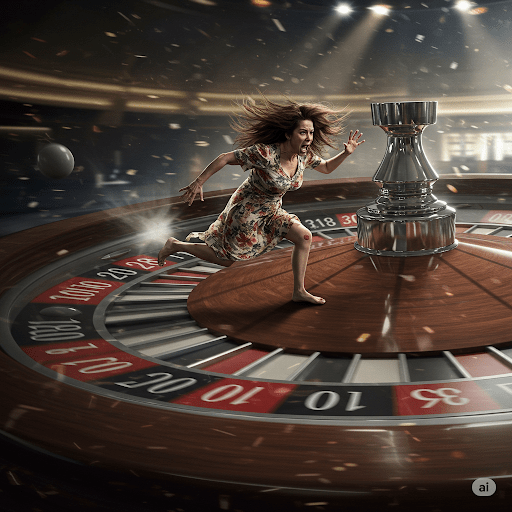
Why risk losing a multi-million (or billion) dollar license, facing criminal charges, and destroying public trust when the perfectly legal, mathematically guaranteed house edge prints money day in and day out? Cheating is messy, risky, and, for a modern casino, utterly unnecessary. The real con isn’t hidden up a dealer’s sleeve; it’s hidden in plain sight – in the probabilities, the psychology, the very atmosphere designed to keep you chasing losses and dreaming of that one lucky spin. They don’t need slight of hand when they’ve mastered slight of mind. Remember that next time you feel the urge to “double down.” The house already did, long before you walked through the door.